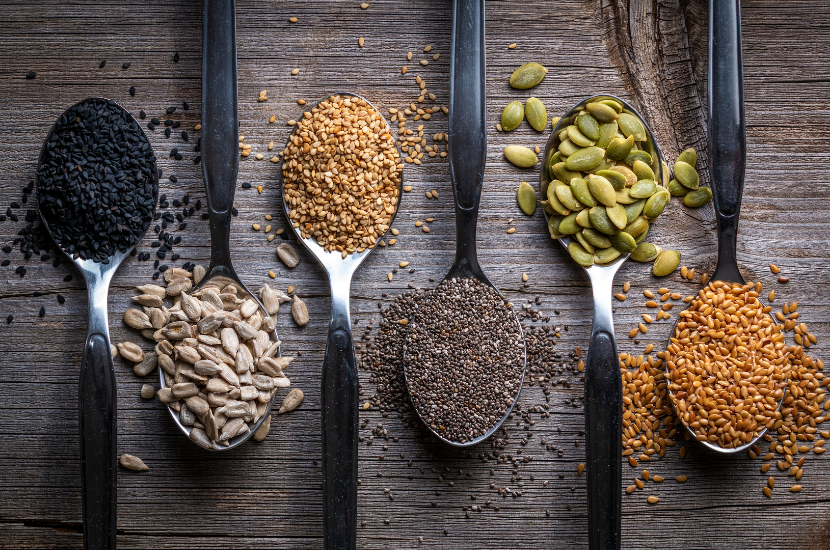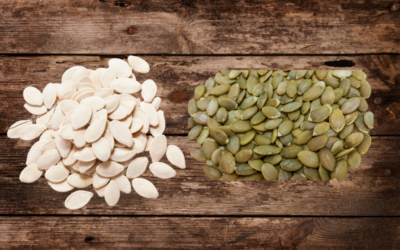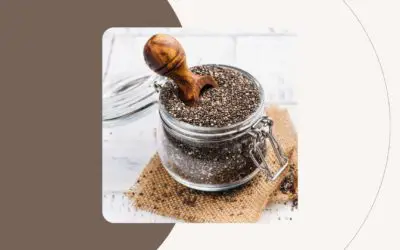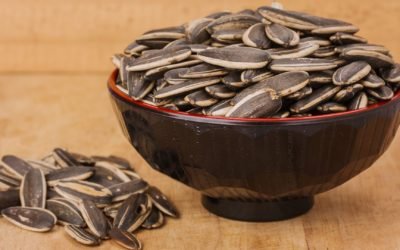
Healthiest Seeds In The World
Seeds are one of the easiest food to eat, as they of such small sizes. Not only are they easy to eat, but they are also healthy as they contain high amounts of fiber and protein, amongst other benefits. Find out what are some of the healthiest seeds in this article!
Chia Seeds
Chia seed is a superfood that contains high amounts of omega-3 fats and fiber. Consuming chia seeds increases alpha-linolenic acid (ALA) in blood, which a type of omega-3 fatty acid that helps to reduce inflammation. This thus helps to reduce the risk of developing arrhythmias, which is the condition of having irregular heartbeat. A study has also shown that chia seeds may help to increase the levels of eicosatetraenoic acid (EPA) in blood, which is surprising as the most common source of EPA is found in oily fish. Another reason for why chia seeds are the healthiest seeds are that chia seeds are high in fiber – just an ounce (28.35 grams) of chia seeds provides 10 grams of fiber, and that is almost half the daily recommended intake for a middle-aged woman. Fiber is needed for the digestive system to clean one’s gut quickly and facilitate bowel movement. It also reduces inflammation in the intestines. Fiber helps to curb one’s appetite, as people who consume chia seeds tend to feel fuller and consume less, leading to weight loss.
Flax seeds
Flaxseeds, which are also called linseeds, have similar benefits to chia seeds. They both contain high amounts of fiber and ALA. However, the omega-3 fats are contained on the fibrous shells of the seeds, so unless you ground them, they cannot be digested easily. The ALA found in flax seeds help to lower the risk of heart attacks and illnesses, due to the effects of lowering blood pressure and cholesterol levels. 100 g flax seeds contain 22, 857.1 mg of omega-3 fatty acid, which is more than 17,500 mg found in 100 g of chia seeds.
Flax seeds also have higher levels of antioxidants – they contain 15 times more lignans (which are a cancer-fighting antioxidant) than chia seeds. A research involving 6000 women showed that consuming flax seeds regularly could reduce the risk of developing breast cancer by 18%. Flax seeds may also help to control blood sugar levels, as studies have shown that people with type-2 diabetes who are fed flax seed powder every day, could have reduced their fasting sugar by 8-20%. Hence, flax seeds are as healthy or are healthier than chia seeds.
Hemp seeds
Hemp seeds are good sources of protein, which makes them suitable for vegetarians. They contain complete proteins, which are all the amino acids required that the human body cannot make. Protein makes up more than 30% of hemps seeds and it’s quality is also said to be higher than other plant protein origins. Hemp seeds also contain an anti-inflammatory acid called gamma-linolenic acid. Hemp seed oil promotes heart health by increasing omega-3 fatty acids in the blood. These omega-3 fatty acids help to reduce inflammation and may improve the symptoms of eczema.
Sunflower seeds
Sunflower seeds have a substantial amount of protein, monounsaturated fats and vitamin E. Sunflower seeds may help to reduce inflammation in the middle-aged and older people, as a study conducted on 6000 people found that those who consumed sunflower seeds more than five times a week had a reduction in C-reactive protein (CRP), an important chemical contributing to inflammation.
Sunflower seeds are also one of the highest sources of vitamin E, which is an antioxidant that helps to protect against the oxidation of polyunsaturated fatty acids found within the membranes of the immune cells. These fatty acids oxidize due to high metabolic activity and the fight against harmful pathogens. Thus, vitamin E protects the fatty acids against free radicals, which prevents immune cell damages and hence strengthens the immune system. Therefore, sunflower seeds are one of the healthiest seeds as they help to reduce inflammation and strengthen the immune system amongst, other benefits.
Sesame seeds
Sesame seeds are made up of 20% protein and a lot of fiber. They are also good sources of lignans and particularly, a type called sesamin. This ligan has antioxidant and anti-inflammatory activities that promote heart health. Some studies have shown that sesamin may be converted by intestinal bacteria into another type of lignan called enterolactone. This may benefit the body as low levels of enterolactone may lead to heart illness and breast cancer. Sesame seeds may also reduce muscle damage and oxidative stress and promote aerobic activity amongst athletes. Thus, sesame seeds are one of the healthiest nuts as they have many positive effects on those who consume them.
Pumpkin seeds
Finally, we have pumpkin seeds that are good sources of mega-3 fatty acid, monounsaturated fats, protein, zinc, magnesium and phosphorous. Pumpkin seeds also contain high amounts of phytosterols that come from plants and lowers cholesterol levels. They may also reduce the risk of one developing breast cancer and kidney stones (that consists mainly of calcium oxalate). Lastly, pumpkin seeds are one of the healthiest nuts as they alleviate symptoms of prostate and urinary disorders as well.
Conclusion
All in all, these seeds are the healthiest and most versatile garnishing or snack that can be added to just about anywhere, from soups, to bakes to yoghurt – because of their small size. Grab some seeds today to start making some changes to your diet!






